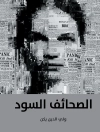Political communication has fundamentally transformed as digital technologies have become increasingly important in everyday life. Technology platforms have become powerful political instruments for world leaders, campaigns, social movements, journalists, and non-governmental organizations. Moreover, they are essential to how people communicate about politics, encounter and share political information, and take action to pursue their political goals.
This is the first textbook to center digital platforms in understanding political communication. With global examples beyond the context of Western democracies, the text reveals how digital technologies such as social media and search engines are increasingly shaping political communication in countries around the world. It shows how the core processes of political communication are being reshaped by platforms, from how elections are contested to how issues make it onto policymaking agendas. Topics covered include public opinion, journalism, strategic communication, political parties, social movements, governance, disinformation, propaganda, populism, race, ethnicity, and democratic backsliding.
Full of lively examples and pedagogical features, Platforms, Power, and Politics offers an exciting and innovative new approach to political communication. It is essential reading for students of political communication and an important resource for scholars, journalists, and policymakers.
Jadual kandungan
Acknowledgments
Chapter 1: Introduction: Political Communication in the Platform Era
Chapter 2: Definitions and Variations of Political Communication
Chapter 3: Platforms and their Power
Chapter 4: Platforms, Public Spheres, and Public Opinion
Chapter 5: Platforms and Journalism
Chapter 6: Platforms and Strategic Political Communication
Chapter 7: Platforms, Campaigns and Campaigning
Chapter 8: Platforms and Movements
Chapter 9: Platform Governance
Chapter 10: Platforms, Misinformation, Disinformation, and Propaganda
Chapter 11: Platforms and Populism, Radicalism, and Extremism
Chapter 12: Platforms, Politics, and Entertainment
Chapter 13: Conclusion: Platforms and the Future of Political Communication
Revision: Chapter Objectives Revisited
References
Index
Mengenai Pengarang
Ulrike Klinger is Professor of Political Theory and Digital Democracy at the European University Viadrina.
Daniel Kreiss is the Edgar Thomas Cato Distinguished Professor in the Hussman School of Journalism and Media at the University of North Carolina at Chapel Hill.
Bruce Mutsvairo is Professor and Chair of Media, Politics and the Global South at Utrecht University.












